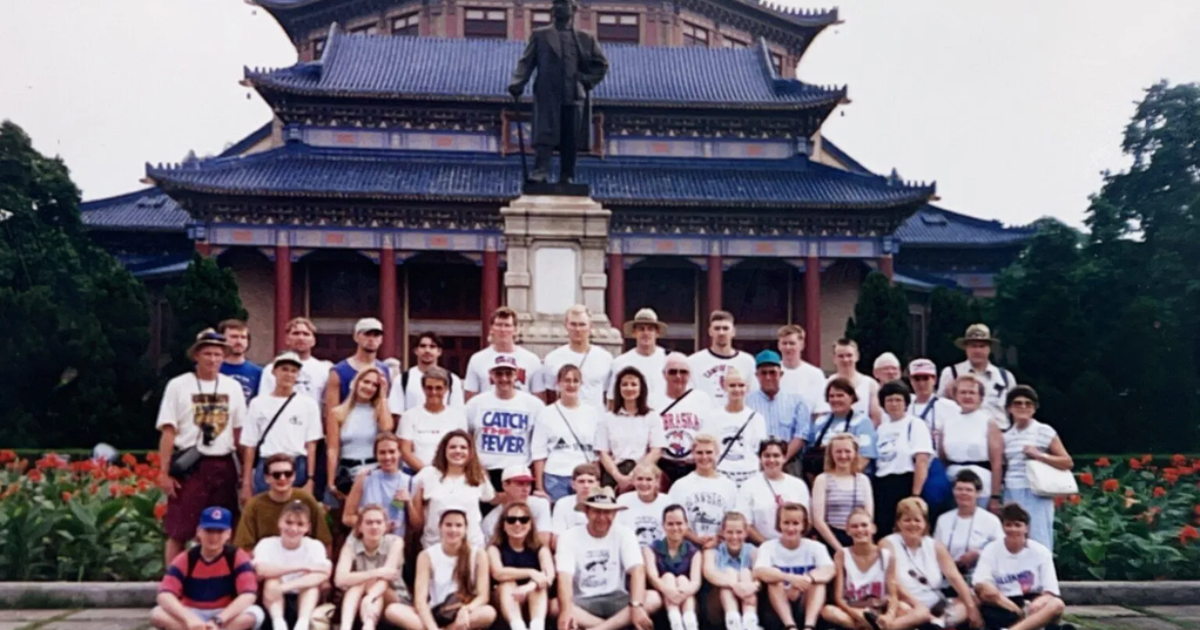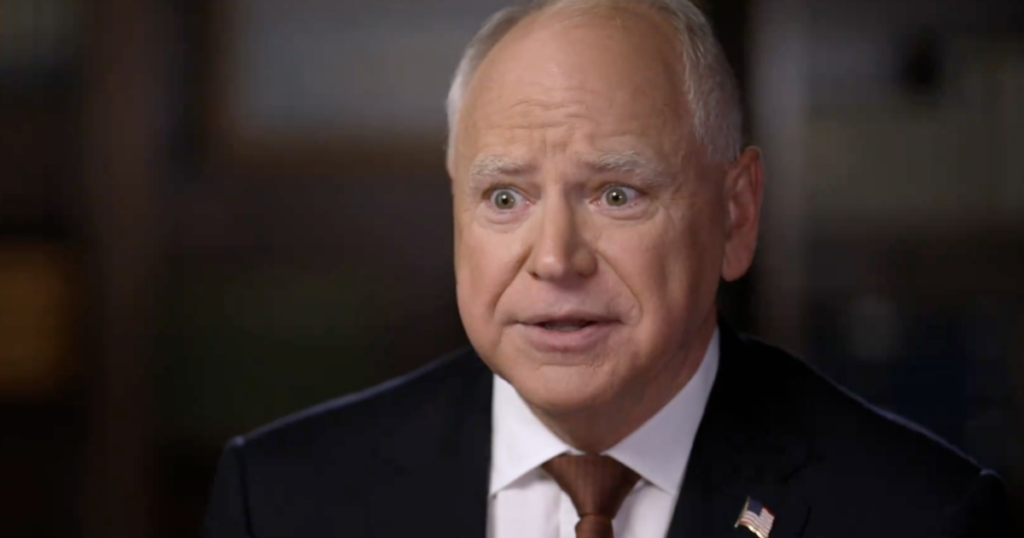
Republican concerns that Kamala Harris’ running mate, Tim Walz is compromised and may be soft on China are well warranted, given Walz documented connections with the Communist country.
American First Legal wrote that Walz “while serving in Congress, was a fellow at the Macau Polytechnic University, a Chinese institution that characterizes itself as having a “long-held devotion to and love for the motherland.”
During the vice-presidential debates, Tim Walz remarked that Trump should have gone on one of the high school trips he organized to China, stating, “I guarantee you he wouldn’t be praising Xi Jinping about Covid, and I guarantee you he wouldn’t start a trade war that he ends up losing.”
Walz’s comment makes little sense. While Trump did thank Xi for attempting to contain the virus in China, he strongly opposed the China-style lockdowns and pandemic response in the U.S., which Walz and other Democrats supported.
Walz’s implication that Trump would not have started the trade war if he had traveled with him to China raises the question: why? Trump initiated the trade war because China consistently engages in unfair trade practices.
China subsidizes state-owned enterprises, allowing them to undercut prices in other countries, dominate markets, and uses coercive concessionary loans to poorer nations, trapping them in debt.
These countries are then pressured to support China’s “One-China” policy and vote in favor of its initiatives at the UN. China also manipulates its currency and keeps 50% of its population at or near the poverty line, around $10 per day, to maintain cheap exports.
When Trump started the trade war in 2018, the average Chinese tariff on U.S. imports was about 8%, with some products facing even higher tariffs.
For instance, U.S. agricultural products like soybeans were hit with tariffs as high as 25%, and American automobiles faced similar rates.
These tariffs severely impacted industries reliant on trade with China. Meanwhile, the average U.S. tariff on Chinese goods was only 3%.
Trump rightly argued that China is the primary military threat to the U.S., and every dollar spent on Chinese products or invested in China strengthens the Chinese Communist Party (CCP) and its military capabilities.
What did Beijing offer Walz that led him to believe any of this was in America’s best interest?
Democrats fought Trump tooth-and-nail, attempting to discredit him for starting the trade war and trying to block his tariffs and restrictions on China.
However, when Joe Biden took office, he maintained those tariffs and even expanded trade restrictions on China. Trump didn’t lose the trade war; he set in motion a U.S. policy that is gradually shifting supply chains away from China.
The policy was not only justified, but the fact that Democrats are continuing it proves it was the right move.
Now, the question arises: Does Tim Walz believe the U.S. has been too hard on China and should remove these restrictions, potentially increasing U.S. dependence on its number-one national security threat?
The House Committee on Oversight and Accountability launched an investigation in August into Tim Walz, connections to China, particularly after The committee, led by Republican Chairman James Comer, received whistleblower information expressing concerns within the Department of Homeland Security about Walz’s longstanding ties to the People’s Republic of China (PRC).
While Walz initially claimed he had visited China “dozens of times,” his campaign recently clarified that the actual number was closer to 15. He also corrected a previous statement that he was in Hong Kong during the 1989 Tiananmen Square crackdown, admitting he arrived later that year.
In an open letter to the FBI, Comer (R-Ky.) renewed his request for FBI Director Christopher Wray to provide all information and documents related to Minnesota Governor Tim Walz’s interactions with Chinese Communist Party (CCP)-affiliated entities and officials. Despite a prior request made on August 16, 2024, the FBI has not yet responded.
Comer emphasized that the Committee is investigating Walz’s connections with CCP entities, such as his 30 visits to China, his association with Macau Polytechnic University, and his involvement in securing federal funds for the Hormel Institute, which has ties to both the Wuhan Institute of Virology and the Beijing Genomics Institute.
Comer raised concerns that Walz’s ties to the CCP could have influenced his decisions as both a congressman and governor, and could pose a risk if he were elected vice president. The Committee has reiterated its demand for documents and information from the FBI on these matters.
A second investigation, launched in September, by America First Legal (AFL) took a deeper look into Waltz’ ties to the Chinese Communist Party (CCP). Walz had operated a business, Educational Travel Adventures, Inc., that organized trips to China for American children.
Additionally, during his time in office, Minnesota’s universities, including the University of Minnesota and St. Cloud State University, hosted Confucius Institutes, which are known CCP influence operations.
Despite pressure from the Trump administration to close these institutes, the one at St. Cloud State University remained open until 2023.
AFL’s investigation aims to uncover any records or communications between Gov. Walz and CCP-affiliated entities, including Confucius Institutes, the Beijing Genomics Institute, and the Ministry of Education of the PRC.
The Director of National Intelligence (DNI) has warned about the Beijing Genomics Institute (BGI) due to concerns that the company may be collecting genetic data for the Chinese government, potentially enabling surveillance and advancing China’s military and biotechnology capabilities.
AFL Senior Vice President Reed D. Rubinstein criticized Walz for his “sympathetic engagement” with the CCP, stating that his actions may jeopardize U.S. national security. AFL has filed Freedom of Information Act (FOIA) requests to further explore Walz’s connections with China and uncover potential risks to Minnesota’s institutions and national security.
Tim Walz’s connections to China and the CCP are undeniable, and given his opposition to the trade war, it’s clear he would undermine U.S. national security by supporting policies that benefit Beijing.
The Harris-Walz ticket promises to be soft on the border, soft on crime, soft on drugs, and soft on China— a combination that seems like a recipe for disaster.
The post Tim Walz: Compromised by China with Connections to the CCP that Are Undeniable appeared first on The Gateway Pundit.
Source: The Gateway Pundit
TruthPuke LLC hereby clarifies that the editors, in numerous instances, are not accountable for the origination of news posts. Furthermore, the expression of opinions within exclusives authored by TruthPuke Editors does not automatically reflect the viewpoints or convictions held by TruthPuke Management.







